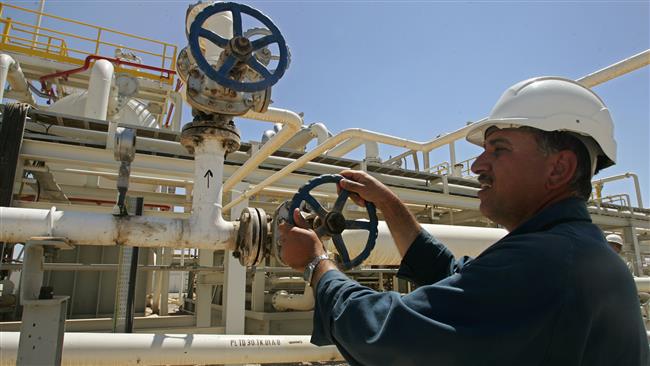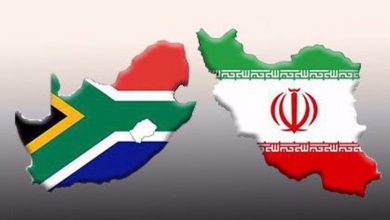Iraq mulls selling oil through Iran: Report


The Iraqi government says it may consider shipping crude through Iran if talks with the local Kurdish administration on oil revenue sharing fall apart.
The autonomous Kurdish region is demanding a bigger share of the oil proceeds at a time when the Iraqi government is buckling under the pressure of lower oil prices and the costs of war on Daesh militants.
Officials of Iraq’s State Oil Marketing Organization (SOMO) and the Kurdish Regional Government are about to meet, possibly next week, in a last-ditch effort to patch up differences.
“If the negotiations come to a close without an agreement, we will start to find a way in order to sell our oil because we need money, either to Iran or other countries,” Iraq’s Deputy Oil Minister Fayadh al-Nema told Reuters.
Under the scenario, the Iraqi government would be shipping about 150,000 barrels per day of oil through Iran that is being produced from the fields in Kirkuk.
An Iraqi official said the two countries may work out an arrangement similar to Iran’s oil swap deals with Caspian nations, under which Iran would import Iraqi oil to its refineries and export an equivalent amount of its own crude on behalf of Baghdad from Iranian ports on the Persian Gulf.

The Kurdish Regional Government (KRG) controls the pipeline which transfers Iraqi oil to the Turkish port of Ceyhan in the Mediterranean.
Amid the dispute with the central government, the Kurds have been selling Iraq’s oil independently on the international market, along with crude produced in their northern region.
Baghdad stopped paying the Kurds $400 million a month after the KRG halted delivering crude to the central government about a year ago. The Kurdish government is demanding that Baghdad guarantee them monthly payment of $1 billion from oil revenues.
The Kurdish regional government is also contesting oil fields in Kirkuk. It regard the region part of the autonomous territory after overrunning Kirkuk two years ago when the Iraqi army disintegrated amid a Daesh offensive.
Kurds account for one third of Kirkuk’s population which also includes Arabs and Turkomans. The local Kurdish government currently produces around 500,000 barrels per day of oil and ships it to Turkey from where it is sent to the US, Europe and Israel.
Last week, Iraq’s state-run North Oil Company resumed sending crude through the Kurdish-controlled pipeline to Turkey in a goodwill gesture ahead of negotiations with the Kurds.
Nema said Iraqi Prime Minister Haider al-Abadi had ordered the pumping to resume in order to avoid damage to reservoirs.




